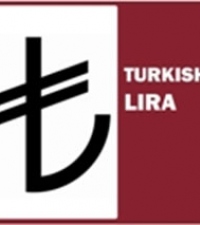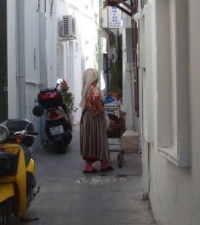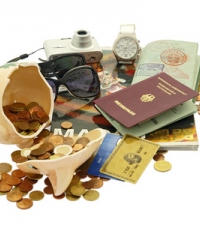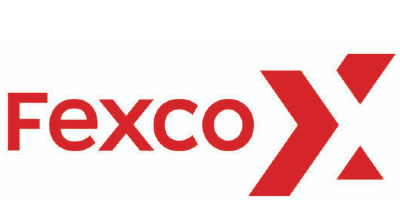Banks and Banking in Turkey

In 2001, following decades of systemic financial instability, chronic inflation, stratospheric interest rates and wild runs on the currency, the banking system snapped and Turkey suffered its own banking meltdown. Several institutions went to the wall and people lost their shirts. The authorities acted quickly and decisively. The banking sector was consolidated and reformed. As a result of this, and other important structural reforms, Turkey has gone from basket case to power house in only 10 years. Nowadays, Turkey’s banking system is competitive, robust, well-capitalised and admired internationally. Turkey has survived the current global financial crisis relatively unscathed.
Due to relentless devaluation, like the Italian Lira of old, Turkish money used to be counted in millions. In 2005, the Turkish Government lopped off the zeros and introduced the New Turkish Lira. It was no longer necessary to place your thumb over the last three zeros to make sense of what you were spending. After a period of transition, the New Turkish Lira is back to being called the plain old Lira.
The Lira is available in 5, 10, 20, 50, 100 and 200 notes. The 1 Lira coin consists of 100 kuruş and coins are available in denominations of 1, 5, 10, 25 and 50 kuruş. In 2012, a new symbol was introduced to represent the Turkish Lira.
ATM services
Turkey has a large network of ATMs. In fact, the Turks love their ATMs so much they’re often to be founded huddled together in rows. As well as withdrawing cash, you can check account balances, pay bills and make transfers. Some ATMs will charge (particularly if your ATM card is issued by a different Turkish bank). Using a credit card to withdraw cash will usually incur an even higher charge (typically around 3% of the amount plus a fixed fee). Visitors from abroad can use most Turkish ATMs though withdrawals will invariably incur a fee by the Turkish bank, their own bank or both. In major tourist areas, some ATMs also dispense dollars, euros and/or sterling.
Bank opening times
Banks in Turkey are generally open from 8.30am to 5pm, Monday to Friday. Many banks provide internet banking services (in English) that are accessible 24 hours per day, and also operate telephone banking services (also in English but the quality varies) that offer extended opening hours, right through to a full 24 hour service.
Banking services
Turkish banks offer a wide range of financial services (for residents and non-residents) and most of the larger banks also offer business and corporate banking services. Personal (or ‘retail’) services include:
- Current accounts (often called normal accounts in English). This type of account is typically used for day-to-day banking, and providing easy access to your money. Most banks give you the option of having accounts in Turkish Lira or foreign currencies – and the ability to transfer funds between them and to other accounts in and outside Turkey. Current account facilities include ATM cards, phone banking and internet banking. Interest paid on current accounts is typically low and charges apply to some transactions (check with your bank).
- Credit cards. Many Turkish banks offer Visa and MasterCard credit cards and you can apply for them when you open your main bank account. If you take out a credit card, you may have an amount frozen in your current account, usually equivalent to the limit on your credit card. Major credit cards such as Visa and MasterCard are accepted throughout Turkey.
- Savings/deposit accounts. These have traditionally been very popular with expats, mainly because of competitive interest rates. The days of 20-30% may well be over, but even in 2012, it is possible to get a deposit accounting attracting a rate close to 10%. Don’t forget that deposit accounts attract a withholding tax (15% in 2012) and this is subtracted from your income at source. The rate you get will depend on the amount you invest and the time you invest it. Also, remember that there are restrictions on account withdrawals and accessing your funds: if you withdraw cash during the investment period, you will usually lose the accrued interest.
- Investment opportunities. These include Mutual Funds, Gold Trading and Treasury Bills. As in any country, ensure you have a full understanding of an investment product, particularly about the risk factors. If you are unsure, insist on speaking to an English speaking adviser and/or having something in writing (and in English). Tax on investment income is usually deducted at source. The rate can vary, depending on your residence status and/or personal circumstances.
- Personal loans and mortgages. These are available to all current account holders, subject to individual circumstances.
N.B. In most Turkish cities and coastal resorts, services are provided in English, though the quality of this service can vary from bank to bank and location to location. Bank charges also vary from bank to bank.
Opening a bank account
To open a bank account in Turkey, you will need to provide proof of your identity and have a Turkish Tax Number (relatively easy to obtain from the local tax office – more here). Some banks may ask for additional documentation, particularly if you are interested in investment products. In these cases, you will typically be asked to provide proof that you live in Turkey (residence permit, rental contract, utility bill), or that you own a property in Turkey by providing the title deeds (Tapu). You will also need to register a mobile phone if you want to access on-line banking services.
Hints and Tips
- Don’t get caught out by numbers: in Turkey, full stops are used to separate groups of thousands, and decimal points are shown as commas. So, ten thousand is shown as 10.000 (not 10,000) and 9.9% APR will be shown as 9,9% APR.
- If you plan to settle in Turkey or are considering major or long term investments, you would be wise to shop around for a bank providing a good service to non-Turkish nationals. Sensible advice and a good relationship with a personal or investment banker could save you money – and minimize the hassle.
- If you have any complaints or issues with a bank in Turkey, contact the Banking Ombudsman.
By Jack Scott, author of Perking the Pansies, Jack and Liam move to Turkey, a bitter-sweet tragi-comedy recalling the first year of a gay couple in a Muslim land.
- My Life Abroad -
A selection of expat stories

"A fun compulsive read!"
J. Matcham, Amazon
"I strongly advise people ready to live abroad to read this book!"
Patrice, Amazon

 Taxes in Turkey
Taxes in Turkey  How exchange rates can affect how you pay for a property overseas
How exchange rates can affect how you pay for a property overseas What are the Benefits of using a Broker to Manage Regular Overseas Payments?
What are the Benefits of using a Broker to Manage Regular Overseas Payments? Fexco payment solutions
Fexco payment solutions Highlights of Istanbul
Highlights of Istanbul